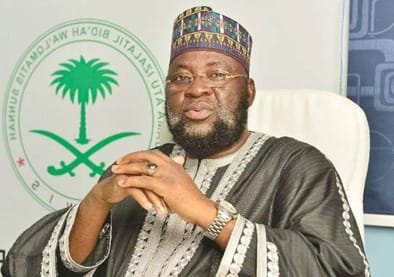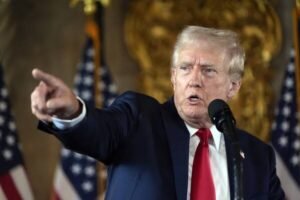
In Defence of Sheikh Bala Lau: Business, Religion, and the Misplaced Criticism by Dan Bello
By Alhaji Naseem Muhammad Adam
In recent days, activist Dan Bello has stirred unnecessary controversy by criticizing Sheikh Bala Lau, the Chairman of Jama’atu Izalatul Bid’ah Wa Iqamatus Sunnah (JIBWIS), one of Nigeria’s most respected Islamic organizations. His remarks suggest that Sheikh Bala Lau, by allegedly seeking or accepting contracts, has compromised his integrity as a religious leader. This criticism, however, is not only misguided but also rooted in a lack of understanding of the Islamic tradition, the nature of leadership, and the role of personal enterprise in supporting religious causes.
*The Man Before the Title*
To begin with, Sheikh Bala Lau did not ascend to leadership from obscurity. Before Nigeria’s return to democracy in 1999, he was already a known businessman. His involvement in trade and enterprise predates his leadership of JIBWIS. Therefore, the assumption that he suddenly became financially empowered through the position is factually wrong and morally unfair. Islam encourages lawful (halal) earnings, and nothing in the religion prohibits a cleric from engaging in legitimate business.
In fact, one of the reasons Sheikh Bala Lau may have been chosen to lead is precisely because of his financial stability. Within many Islamic traditions, especially among da’awa-driven movements like Izala, preference is given to financially capable individuals who can independently support the mission. The rationale is simple: a man who does not depend on the da’awa for his daily bread is more likely to protect it from corruption and mismanagement.
*Business and Leadership: Mutually Exclusive?*
The critical question we must ask is this: Is it haram for a religious leader to run a business or collect contracts, provided everything is done transparently and within the confines of Islamic ethics? The answer is a resounding no.
The Prophet Muhammad (peace be upon him) himself was a merchant before prophethood and continued to oversee his business even after his mission began, albeit with adjustments. His companions, including the likes of AbdurRahman Ibn Awf and Uthman Ibn Affan, were successful businessmen and supported Islam with their wealth.
To assume that a cleric must abandon business simply because he now leads a religious movement is to misunderstand both Islam and practicality. Our religion does not promote asceticism in the way some other traditions do. Islam encourages balanced living—being active in the mosque, the marketplace, and the public square.
*Intentions and Accountability*
If Sheikh Bala Lau accepts contracts to further strengthen his business and, by extension, better support da’awa, where is the harm? So long as public resources are not diverted and religious duties are not compromised, there should be no issue.
Moreover, his decades-long track record shows a man deeply committed to da’awa. Sheikh Bala Lau is not a newcomer to the service of Islam. Many of the criticisms ignore the countless efforts he has made in preaching, building mosques, organizing events, and providing guidance to millions of Nigerian Muslims.
Let us also not forget: it is easier for a man who has wealth to resist temptation than one who is poor and in need. A wealthy Sheikh Bala Lau is less likely to be corrupt than one who must beg to sustain himself and his mission.
*A Final Word to Dan Bello*
Activism is a noble pursuit when rooted in truth and justice. But criticism must be fair, fact-based, and devoid of envy. Attempting to stir suspicion around Sheikh Bala Lau’s business dealings without evidence is not activism—it is slander.
If indeed there are concerns, they should be raised respectfully and investigated through proper channels. Public character assassination of a man with an established legacy of religious commitment does more harm than good.
Let us not forget the words of the Prophet (peace be upon him): “He who believes in Allah and the Last Day should speak good or remain silent.”
In conclusion, Sheikh Bala Lau remains a beacon of guidance for many. His business background is not a blemish on his character—it is part of what makes him a capable, independent, and credible leader in the Islamic movement. Criticisms like those from Dan Bello only serve to distract us from the real challenges facing the Muslim Ummah in Nigeria.


